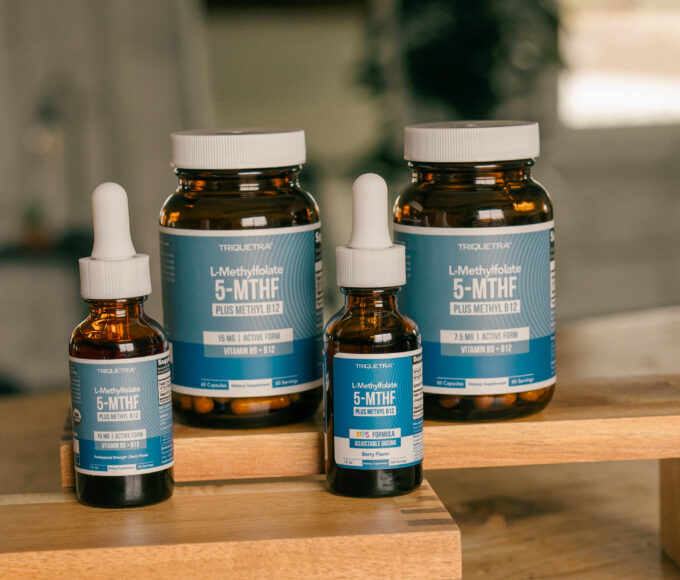5-HTP supplements are like Mr. Sandman in a bottle. Quality sleep isn’t the only benefit. If you’ve got migraines or are feeling blue, serotonin may potentially help you.
Before taking it at bedtime, know why and how it works:
- Understand how it benefits and impacts your body
- Obtain them from sources such as food and supplements
- Be aware of the risks and possible side effects
- Learn the suggested dosage and timing
- Know the safety and efficacy of supplements
What Are The Potential Health Benefits of 5-HTP Supplements?
Manufacturers concoct different formulations or add nutrients. Most 5-hydroxytryptophan or 5-HTP supplements come from the extract of Griffonia simplicifolia seeds. This legume or bean plant abundantly grows in central and west Africa. It’s used in folk medicine to relieve vomiting or diarrhea.
Tryptophan is an amino acid that comes from the food you eat. Your body then converts it to a chemical called 5-HTP. It further changes into another chemical messenger in the brain called serotonin.
Serotonin is like a messenger that helps transfer information between nerve cells in your brain. It’s also called the “feel-good neurotransmitter” since it’s associated with happy feelings. Another hormone from serotonin is melatonin, which is involved in the sleep-wake cycle. Both play a role in regulating your sleep and appetite.
Experts suggest supplementing with 5-HTP increases serotonin and melatonin levels. As a result, people might reap the following health benefits.
1. Promote Quality Sleep

Do you have trouble sleeping? Serotonin and melatonin play a role in promoting healthy sleep patterns. Serotonin helps you get up and feel awake. In contrast, melatonin signals your body when it’s time to sleep. Experts claim that low levels of serotonin and melatonin cause sleep problems.
Researchers studied whether an amino acid for relaxation could help people with sleep disorders. They divided 18 people into two groups receiving either the amino acid or a placebo. People who took the amino acid in combination with 5-HTP fell asleep faster, longer, and better. The synergistic effect of this amino acid with 5-HTP also improves sleep in animal studies.
People with Parkinson’s disease have trouble sleeping. Researchers think it’s because of serotonin and melatonin changes in the brain. So, they probed how 5-HTP supplements might help with sleep. For four weeks, the researchers gave 18 people with Parkinson’s either 5-HTP or a placebo.
Results show that those who took 5-HTP increased their deep sleep and improved movement problems. Thus, people with Parkinson’s can benefit from this safe and effective supplement for quality sleep.
Moreover, a review delved into different substances for nightmares and sleepwalking. Findings reveal that 5-HTP and other drugs could potentially help with these parasomnias.
2. May Ease Depression

Feeling sad is normal. However, there are cases when these feelings of sadness, emptiness, and hopelessness become persistent. It’s called major depressive disorder (MDD) when a lack of interest and a feeling of purpose also exists.
People with depression take medicines to increase their serotonin levels. These medicines improve mood and make them feel better. A study tried a new therapy on 15 women who didn’t respond to usual serotonin drugs. The therapy included 100mg of 5-HTP and 5g of creatine monohydrate daily for eight weeks.
The women who took the combination therapy had a significant decrease in depressive symptoms than before the therapy. It shows that taking 5-HTP and creatine monohydrate may be an effective therapy for women resistant to usual serotonin drugs. Since the study was limited, the researchers suggested more studies to confirm the findings.
Similarly, people with depression can also become resistant to their medicines over time. Treatment-resistant depression (TRD) occurs when these pills no longer work. If it happens, healthcare providers find other ways to help people with TRD.
A study looked into how 5-HTP can alleviate depression. It found that 5-HTP boosts serotonin levels in the brain more than regular medicines. But, 5-HTP doesn’t work well because it doesn’t stay longer in the body. Results suggest that adding slow-release 5-HTP supplements to traditional drugs may help people respond better to therapy.
A 2021 review claims that overall, 5-HTP from Griffonia simplicifolia works for depression.
3. Suppress Appetite

Losing weight is a constant challenge for some people. For instance, people with diabetes may not have enough serotonin, according to experts. As a result, their emotion and appetite change which can lead to food cravings and overeating.
Researchers looked further into the condition of overweight adults with diabetes. The researchers gave them either 750 mg of 5-HTP pills or a placebo daily for two weeks. Results show that the 5-HTP group consumed fewer carbohydrates and fat, resulting in weight loss than the placebo group. Thus, 5-HTP may help control the eating habits of people with diabetes.
Other studies also claim that 5-HTP increases feelings of satiety, which leads to weight loss. For example, overweight adults received a dose of 900 mg of 5-HTP daily. As a result, they reduced their carbs intake and felt full quickly.
A study yielded a similar result. Overweight women who took 5-HTP supplements from Griffonia simplicifolia for four weeks felt less hungry, making them eat less. At the same time, their body mass decreased than the placebo group. It shows that taking 5-HTP can help people with weight problems feel full and lose weight.
Moreover, researchers gave 14 healthy adults either 5-HTP or vitamin C. During brain imaging, they were shown pictures of food high in calories, carbs, protein, and non-food stimuli.
The 5-HTP group had more activity in brain parts associated with appetite suppression and satiety. In contrast, the vitamin C group showed less activity in specific brain regions. These findings suggest that taking 5-HTP supplements may help people steer towards healthier food choices. It may also regulate appetite. But more studies are needed to show its weight loss effects.
4. May Help People with Parkinson’s Disease

People with Parkinson’s disease (PD) have movement difficulties and symptoms of apathy and depression. These symptoms may be linked to changes in brain chemicals called neurotransmitters, like serotonin. Studies have suggested that 5-HTP supplements increase serotonin levels which might help improve these symptoms.
Researchers conducted a trial of 25 people with PD who received either 50 mg of 5-HTP or a placebo. After 16 weeks, the results showed that 5-HTP led to a significant improvement in depressive symptoms.
Although, the researchers did not observe any effect on apathy symptoms. The result is promising, yet larger and longer studies are needed to confirm the benefits of 5-HTP for people with PD.
Another study aimed to see if 5-HTP could help with one specific side effect called levodopa-induced dyskinesias (LIDs). It’s commonly seen in people with PD who take the levodopa drug. As a result, people with LIDs exhibit involuntary movements.
The 12 people with PD received 5-HTP or a placebo for four weeks. Then, they switched to other therapies for another four weeks.
The results show that 5-HTP was better than the placebo at reducing LIDs. Therefore, this study suggests that 5-HTP might be helpful for people with PD who experience LIDs. However, more research is needed to confirm these findings.
5. May Subdue Pain

People with fibromyalgia experience anxiety, fatigue, nerve pain, and trouble sleeping. An early study enjoined 50 people with fibromyalgia who received either 5-HTP or a placebo. Those who took 5-HTP improved significantly with mild and temporary side effects.
Similarly, researchers examined the effect of 5-HTP on 50 people with fibromyalgia. For 90 days, the researchers observed their behavior. Then, the researchers compared these observations at the start of the study.
They found that they all got better when they took 5-HTP. Moreover, half of them reported feeling better during the therapy, but 30% experienced side effects. Thus, 5-HTP can help people with fibromyalgia feel better.
Another study compared different fibromyalgia drugs for pain. Some patients received a combination of monoamine-oxidase inhibitors (MAOIs) and 5-HTP. At the same time, some patients took either amitriptyline, 5-HTP, or MAOIs.
Results show that combined MAOIs and 5-HTP reduced pain better than the other drugs. The combined therapy helps the brain send messages that relieve pain.
Additionally, people with fibromyalgia often also have migraines. These conditions seem related to how the brain uses serotonin and other chemicals. The study suggests that fibromyalgia pain can be reduced by helping the brain use these chemicals better.
6. May Relieve Migraines

There’s potential pain relief in 5-HTP supplements for migraines. Many factors can trigger migraines. Experts believe low serotonin levels can cause it.
An early study looked into the effect of 5-HTP and methysergide (M) on 24 migraineurs. They all have the same age, gender, type, and frequency of migraines. They received either 5-HTP or the migraine drug methysergide.
The study found that 75% of those who took M had improved symptoms compared to 71% of those who took 5-HTP. But, the 5-HTP group was more effective in reducing the intensity and duration of migraine attacks than lowering their frequency. Moreover, the M group experienced more side effects than the 5-HTP group. Nevertheless, 5-HTP may be a good option to relieve migraines.
However, a small clinical study shows that taking 400 mg of 5-HTP for two months was more effective than a placebo, but the difference was insignificant. Almost half responded positively, with more than 50% reduced symptoms. However, some reacted poorly to it, and 19% experienced mild, temporary side effects.

How Do 5-HTP Supplements Work?
An imbalance in serotonin levels can result in health conditions. It includes anxiety, depression, sleeplessness, binge eating, and pain. Conversely, taking 5-HTP increases serotonin levels.
According to experts, 5-HTP with meals does not reduce its efficacy. About 70% of it gets absorbed into your bloodstream when you consume it. 5-HTP then easily passes through the blood-brain barrier. It means 5-HTP can get into the brain and help increase serotonin levels.
Additionally, 5-HTP acts as an antioxidant and anti-inflammatory. Your body produces free radicals as a normal metabolic process. It can also come from exposure to toxins in the environment.
An imbalance of free radicals can damage your cells, protein, and DNA. Moreover, your body succumbs to inflammation as a reaction to harmful substances. You can suffer from many health problems as a consequence.
Studies show that 5-HTP can protect your cells and DNA from damage caused by free radicals. In addition, it helps preserve cell membrane fluidity.
At the same time, It prevents the production of specific molecules involved in the body’s response to injury or infection. As a result, it leads to reduced inflammation.
Where Can You Get 5-HTP?
A review of 195 studies identifies some plants as natural sources of 5-HTP. These are Griffonia simplicifolia, Elytrigia (Agropyron) repens, and Agropyron repens or St. John’s wort.
They also noted other organisms as potential sources. It includes a sponge called Hymeniacidon heliophila and the fungal Panaeolus. There are also mushrooms, Boletus edulis, Suillus luteus, Pleurotus ostreatus, and Cantharellus cibarius.
Moreover, scientists have found efficient and sustainable ways to produce 5-HTP. They used Escherichia coli bacteria and yeast through biotechnology to produce 5-HTP. They focus on developing 5-HTP to make it safer and better at removing toxic impurities.
While studies are ongoing, you can get 5-HTP from other sources. You can’t get it directly from food. There are foods, though, that are rich in tryptophan. It’s the amino acid that converts to 5-HTP in the body. Adding these foods may help increase tryptophan.
- Fruits: Bananas, kiwi, pineapple, and plum
- Vegetables: Collard greens, potato, spinach, and turnip greens
- Meats: Chicken and turkey
- Others: Milk, pumpkin seeds, and sunflower seeds
Other than the food, you can also find it in 5-HTP supplements. For example, a review found that each Griffonia simplicifolia seed can contain up to 14% of 5-HTP. Moreover, the contents of several seeds make 95-98% 5-HTP in each capsule.
Check for quality when choosing a brand. Other than being organic, pick the one that contains no:
- GMO
- Gluten
- Soy
- Dairy
- Preservatives
- Artificial Ingredients
It’s best to consult your healthcare provider before taking 5-HTP.
What are the Side Effects and Risks?
Like any medicine, supplements may have side effects and pose health risks. The possible side effects are stomach pain, nausea, vomiting, or diarrhea.
Other issues are dizziness, headache, fatigue, and sleeplessness. Although, the severity appears to be dose-dependent, according to experts. Moreover, serious side effects like aggression and hallucinations are rare.
For example, a study reports a 44-year-old man accidentally took ten times the recommended amount. It resulted in confusion, disorientation, and severe memory loss.
Medical practitioners found that the man had reversible hippocampal ischemia. It means a lack of blood flow to a part of his brain, the hippocampus.
It’s important to remember that taking too much of any supplement can be harmful. For example, many nutrition coaches suggest cycling 5-HTP. You take it for two weeks, then skip it for the following two weeks. You should follow the recommended dosage and talk to your healthcare provider before taking 5-HTP supplements for the best results.
What are the Potential Risks of 5-HTP Supplements?
People use 5-HTP for depression and anxiety. But, it might also cause behavioral and mental disturbances due to its action and dose.
5-HTP increases serotonin levels in your blood and brain. However, based on a 2019 study, this action might also lead to a blood-brain barrier breakdown.
5-HTP caused a 400% increase in serotonin levels after four hours of taking it. When it happens, you may experience a fever—Moreover, oxidative stress and nitric oxide increase in your brain. As a result, your brain cells get damaged. A breakdown of the blood-brain barrier also causes brain swelling.
Thus, the study shows that 5-HTP might be harmful to your brain. It can potentially cause mental and behavioral problems. Fortunately, the study found drugs to counter this effect. Other experts call this case “serotonin syndrome.”
Another occurrence is Eosinophilia-myalgia syndrome (EMS). It’s a rare condition associated with L-tryptophan toxicity. L-tryptophan is found in food before it is converted to 5-HRT. However, this case was due to a contaminated synthetic product from a lone manufacturer in 1989.
In 2013, a study found a person who had EMS from L-tryptophan. But, the researchers were unsure of the L-tryptophan’s safety. So far, other studies point out insufficient evidence to know if 5-HTP causes EMS.
It’s recommended to talk to your healthcare provider if you intend to take 5-HTP supplements.
How Much 5-HTP Should You Take and When?
Studies have yet to determine the standard dose for Griffornia simplicifolia. Clinical studies noted 5-HTP amounts for specific health conditions.
- Anxiety: 150 mg to 800 mg daily for two to six weeks
- Depression: 50 mg to 200 mg three times daily
- Headaches: 400 mg daily for two months
- Weight control: 750 mg daily for two weeks
- Sleep problems: 100 to 300 mg with GABA
- Pain (fibromyalgia): 100 mg three times daily for 30-90 days
People can take it before a meal or bedtime for the best result. However, it’s prudent to follow the manufacturer’s label for the correct dose and frequency of use.
Are 5-HTP Supplements Safe?
In the 1990s, the FDA took tryptophan off the out-of-the-counter shelves. A manufacturer used a “genetically engineered bacterial process,” resulting in EMS cases. But tryptophan came back into the market in 2002 with a warning on possible risks of EMS.
Experts suggest 400 mg daily for up to one year is safe. Other clinical studies note the safety use of 1.2 grams daily for up to 10 months; and 3 grams daily for three weeks. The recommended dose differs for every brand. Not everyone can take it, especially those with other health conditions.
Who Should Not Take 5-HTP Supplements?
There is no reliable information about its use on pregnant and breastfeeding women. So, it should not be taken.
In contrast, the correct dose may be safe for infants and children. For example, studies cite the dose of 5 mg/kg daily for up to 3 years. For safety reasons, experts do not recommend it for children since there are only limited studies supporting its use!
Healthcare providers also recommend withholding 5-HTP two weeks before an operation. It is because, theoretically, 5-HTP might interfere with drugs used during surgery, like anesthesia.
It May Interact with Medicines and Other Nutrients
You should refrain from taking 5-HTP with some drugs and herbal supplements. Take note of the effects of the following:
- Anti-depressants: 5-HTP may cause more drowsiness or sedation. Examples are tricyclics, monoamine oxidase inhibitors, selective serotonin reuptake inhibitors, and serotonin agonists. In addition, it includes herbs and supplements, which might add to the calming effect.
- Carbidopa/Levodopa/L-dopa for Parkinson’s Disease: 5-HTP increases your risk of serotonin effects or restlessness, sleeplessness, and anxiety.
- Serotonin drugs: 5-HTP reduces the drug’s efficacy and increases your risk of side effects. Herbs and their supplements with serotonin action could also cause additive effects when combined with 5-HTP.

Frequently Asked Questions
Question 1: What is 5-HTP?
Serotonin regulates mood, appetite, and sleep. 5-HTP supplements may increase serotonin levels. Also, 5-HTP may improve your mood and make you sleep better. Additionally, it may suppress appetite to keep the pounds off.
Question 2: What are the potential side effects of 5-HTP?
Some potential side effects of 5-HTP supplements include nausea, diarrhea, and dizziness. It may also interact with certain medications and substances. So, talking to a healthcare provider before taking it is critical.
Question 3: How long does it take for 5-HTP to work?
The time it takes for 5-HTP supplements to work varies for every person. Some people can begin to notice improvements within a few days. Or it may take several weeks to see results.
Final Thoughts
5-HTP supplements have several potential benefits. With its serotonin-boosting action, it helps ease depression and promotes better sleep. Moreover, it may suppress appetite for weight control and relieve pain.
However, speaking with your healthcare provider is vital, especially if you have any health conditions.


















Leave a comment